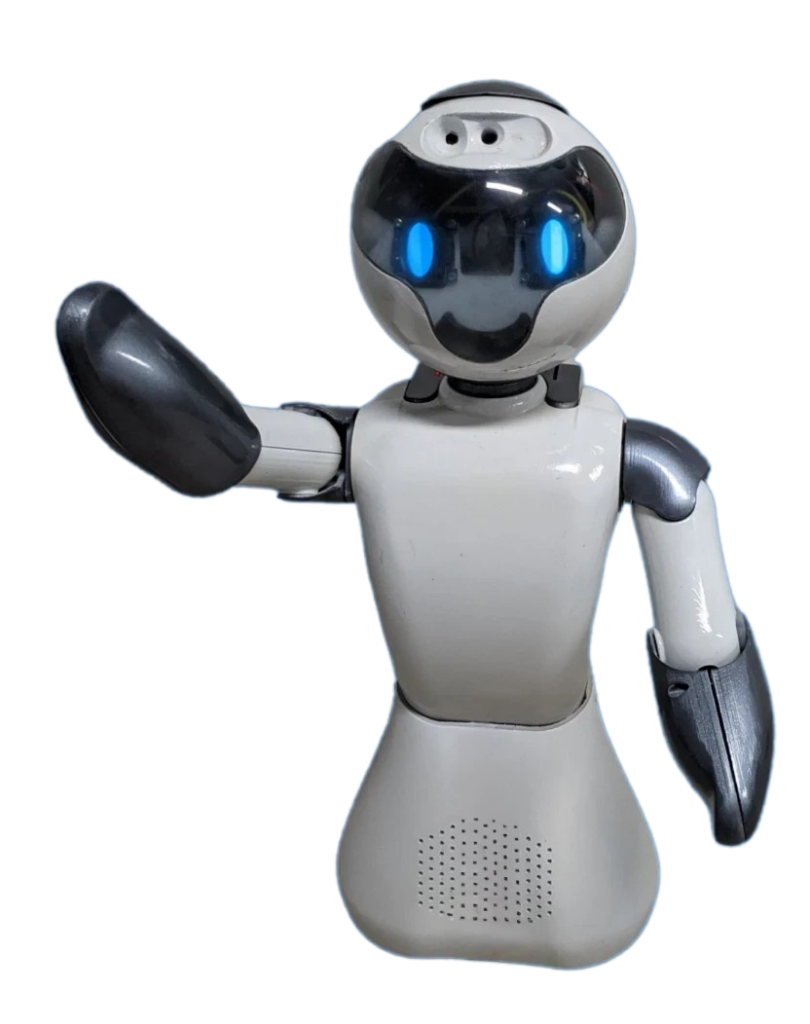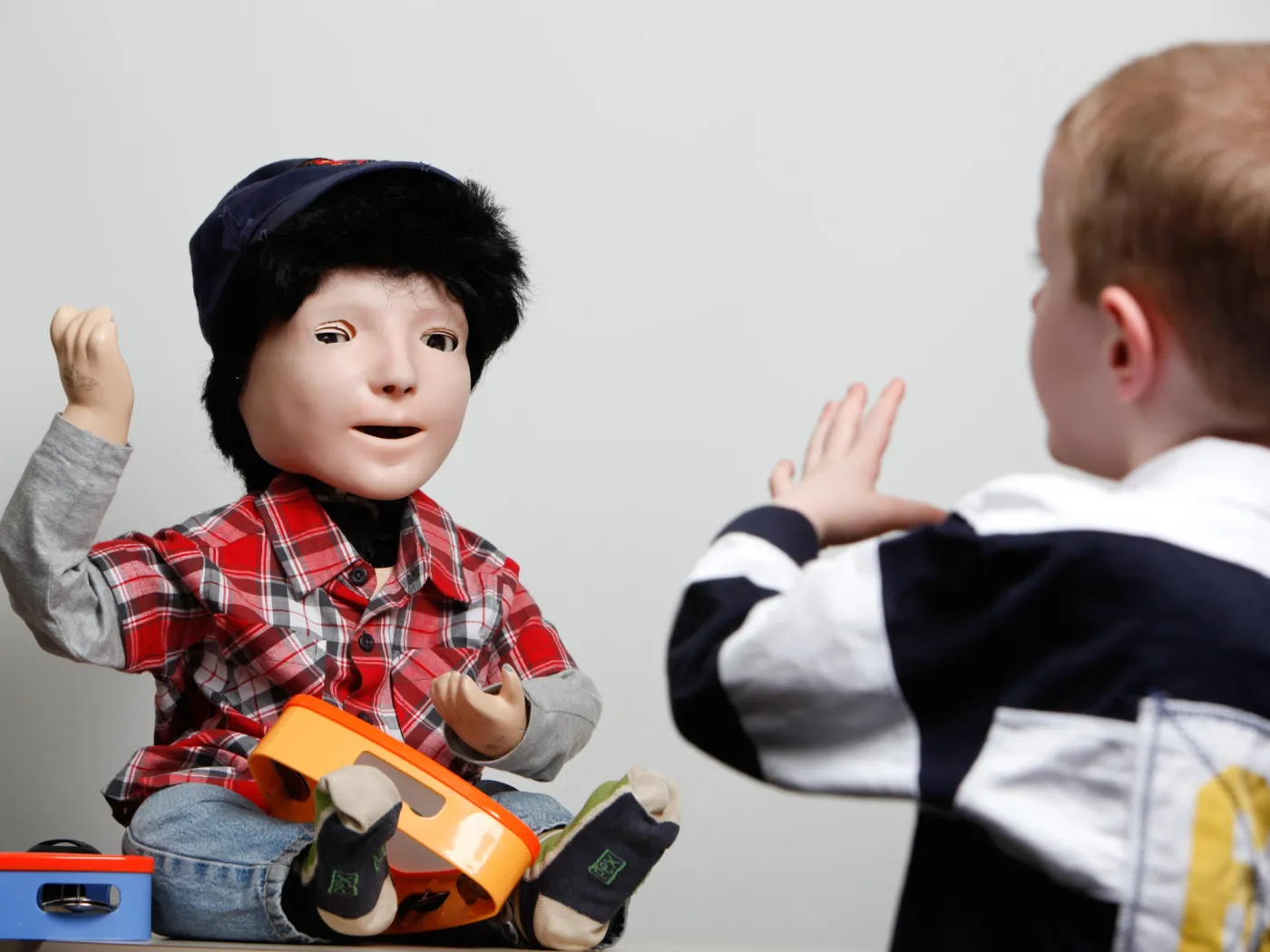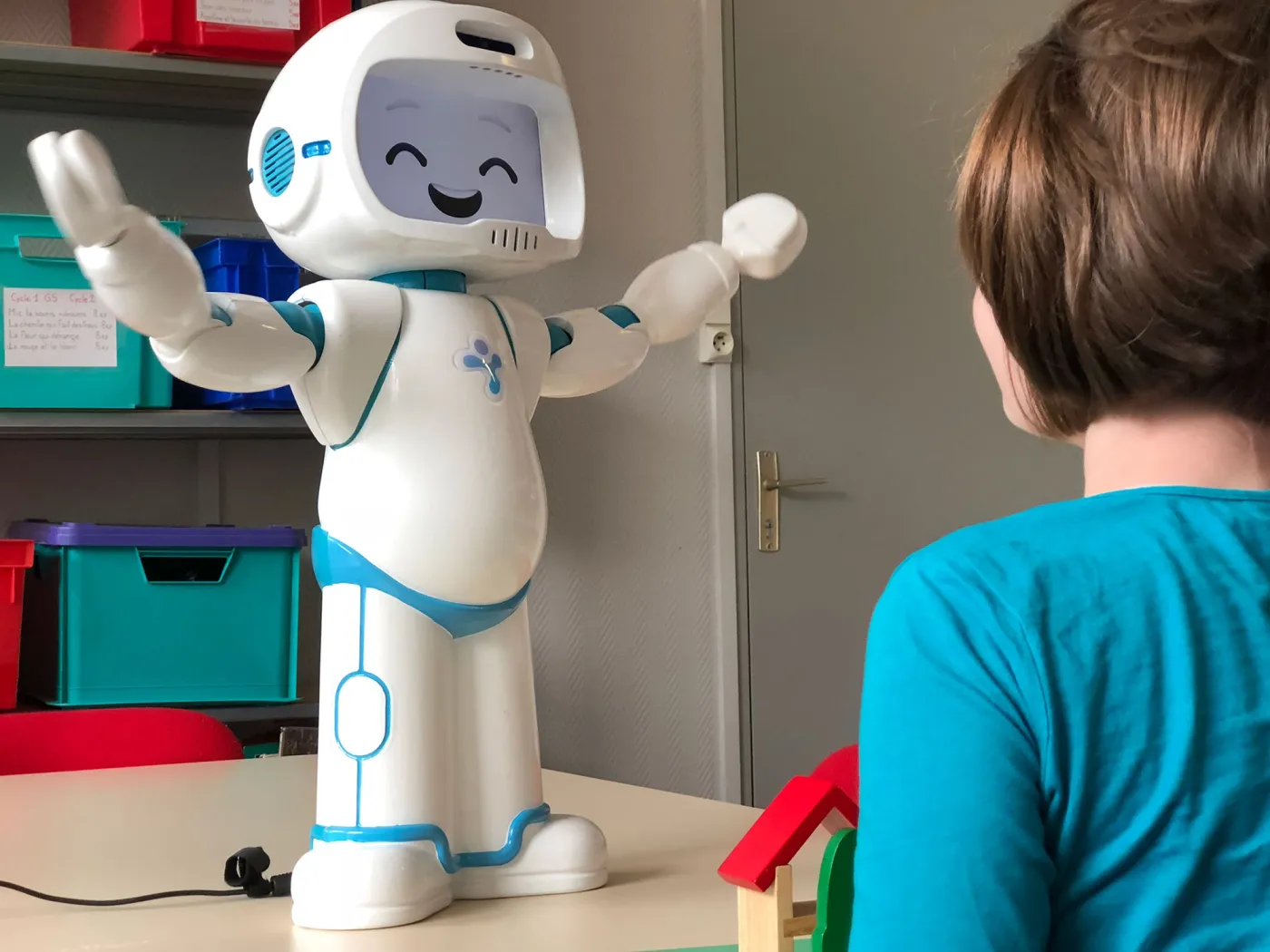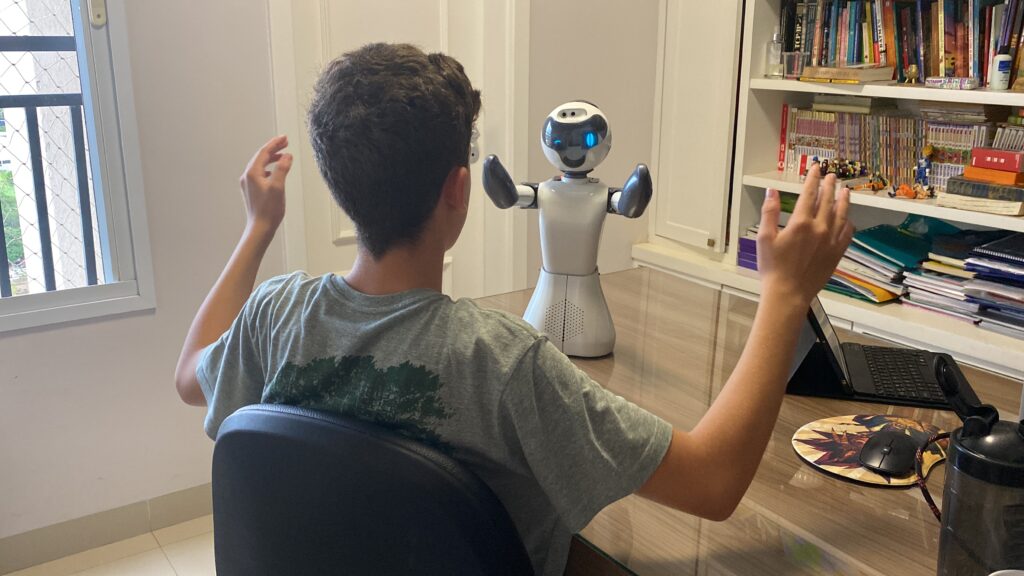On April 2, World Autism Awareness Day is celebrated, raising awareness for a developmental disorder that impacts people’s ability to communicate and interact socially. Recently, on March 24, a study released by the CDC (Centers for Disease Control and Prevention) in the United States revealed that 1 in every 36 children born in the country has this condition. This represents a 22% increase compared to the previous study, released in 2020, emphasizing the importance of seeking innovative solutions for treating Autism Spectrum Disorder (ASD).
Robotics and ASD: An Innovative Approach

In this context, robotics has emerged as a promising tool to assist therapists. A recent study published in the Sensors journal highlights the potential of robotics in ASD treatment, focusing on improvements in social skills, communication, and emotional interactions. The presence of playful and caricatured elements in sessions enhances engagement for these individuals and stimulates skill development, making the therapeutic process more enjoyable and light-hearted. Additionally, robots in this field are adaptable tools, capable of adjusting their behavior and language to meet each child’s individual needs, resulting in a more effective and targeted treatment approach. In this sense, robotics can be considered an evolution of puppet therapy, which is inanimate, and pet therapy, which can be unpredictable.
Humanoid Robots: Promoting Natural and Intuitive Interaction
A common feature in therapeutic robots is their humanoid shape. Their ability to mimic and communicate with body language, gestures, and facial expressions, similar to humans, helps create a more natural and intuitive interaction. Through these robots, a safe and trustworthy environment can be established, enabling patients to more easily share their feelings, fears, and anxieties, which can lead to a significant improvement in their quality of life.
In countries such as the United Kingdom and Luxembourg, the Kaspar and QTrobot robots, respectively, have been widely utilized as tools to help children with autism communicate, interact socially, develop cognitive aspects, and express emotions. However, these solutions are exclusively in English, posing barriers for the Brazilian public.


Qiron Robotics’ Contribution in Brazil
Qiron Robotics is a Brazilian company dedicated to humanizing technology. Among its solutions, Beo stands out as an expressive social robot designed for various use cases, including education for children with autism and other special needs. In partnership with Universidade Federal de Tocantins (UFT), the company has spent 2 years developing a specific protocol for ASD treatment, combining autism and robotics in an innovative approach. Based on preliminary studies, significant improvements in understanding, assimilation, and attention to mental health messages have been observed. This has allowed the robot to be used as a playful tool since last year, assisting therapists in instructing and caring for patients, with Clínica Pensée being the first institution in Rio Grande do Sul state to utilize the technology.

In summary, the incorporation of robotics in the field of mental health, particularly in the treatment of Autism Spectrum Disorder, has demonstrated great potential for positively impacting patients’ lives. Cooperation between companies, educational institutions, and clinics, such as the partnership between Qiron, UFT, and Pensée, plays a crucial role in refining and disseminating these technological innovations. As robotics become more accessible, their use in mental health is expected to continue to grow, improving the quality of life and autonomy of an increasing number of individuals on the autism spectrum and in other conditions that require special care.

